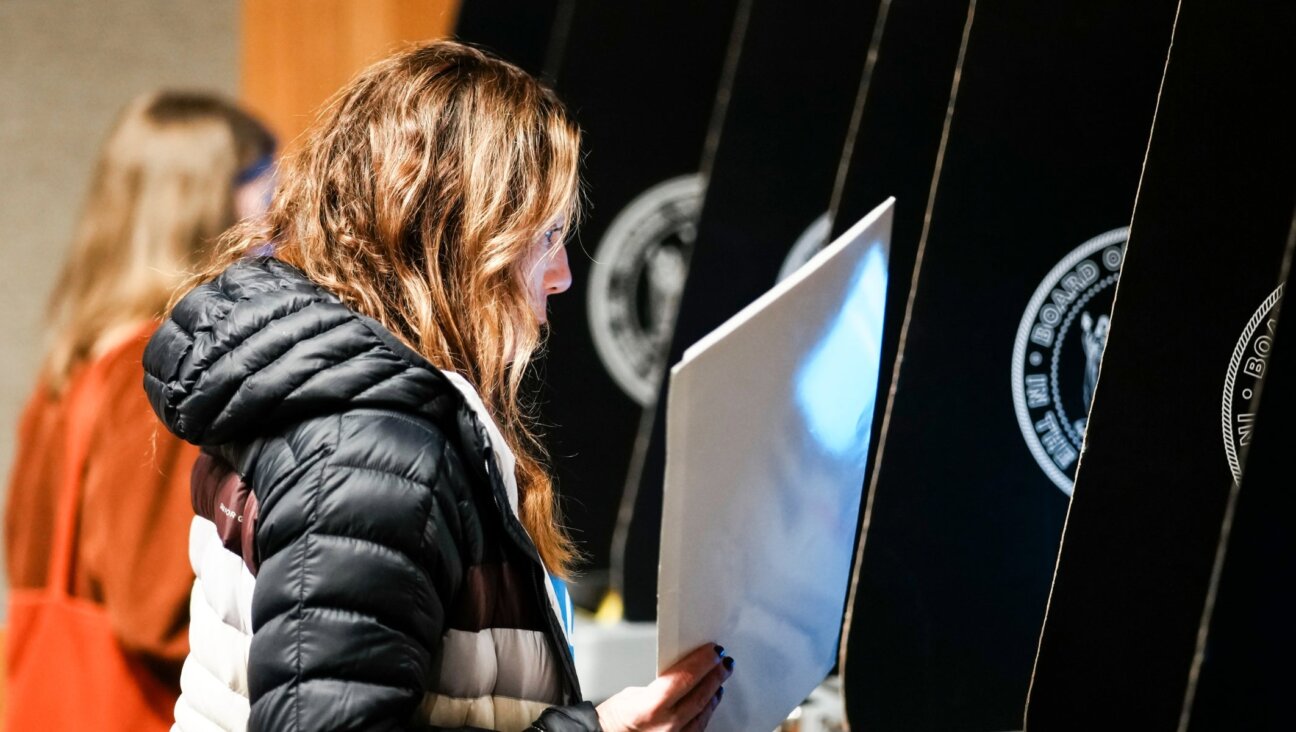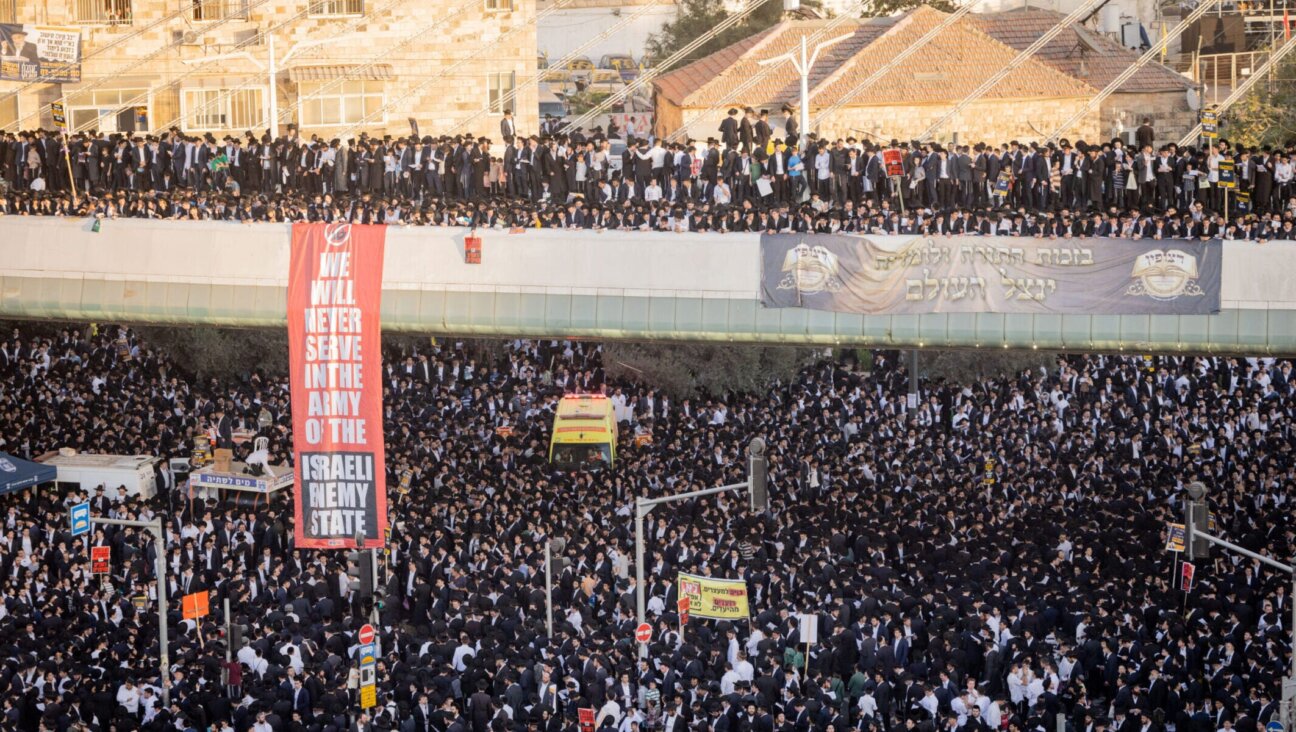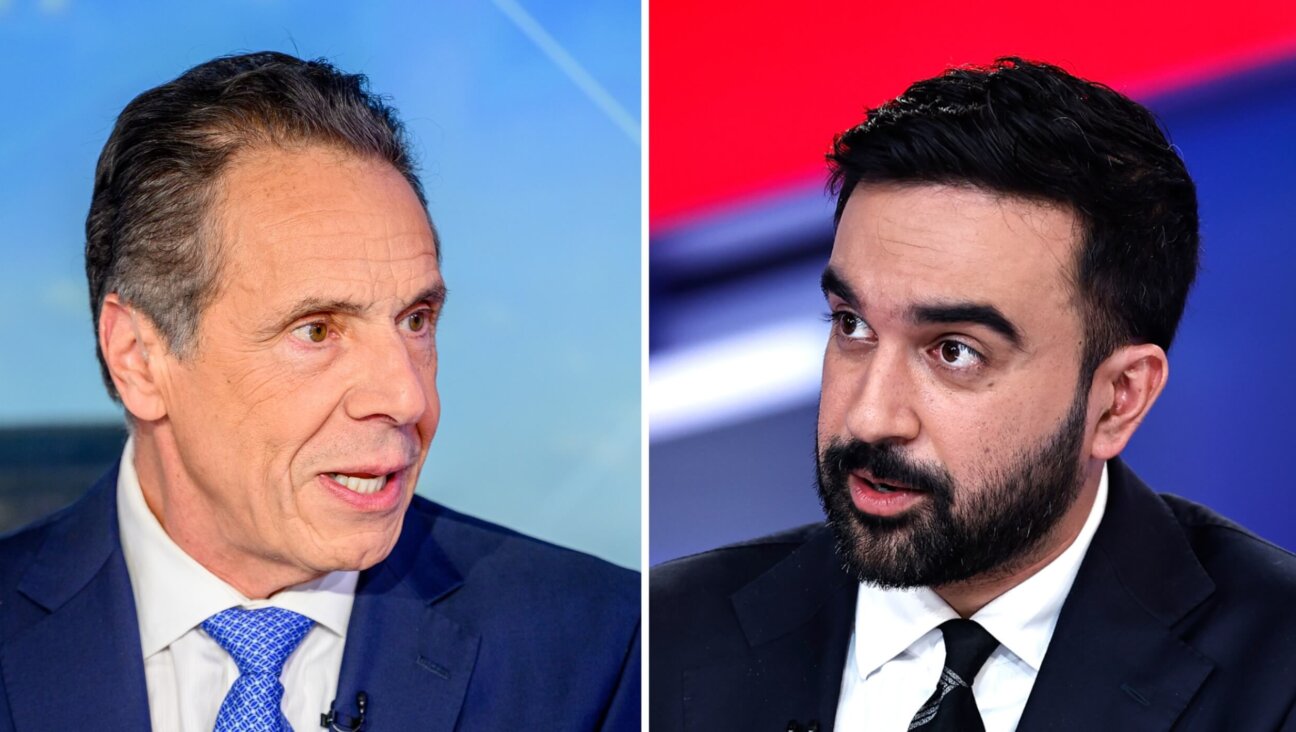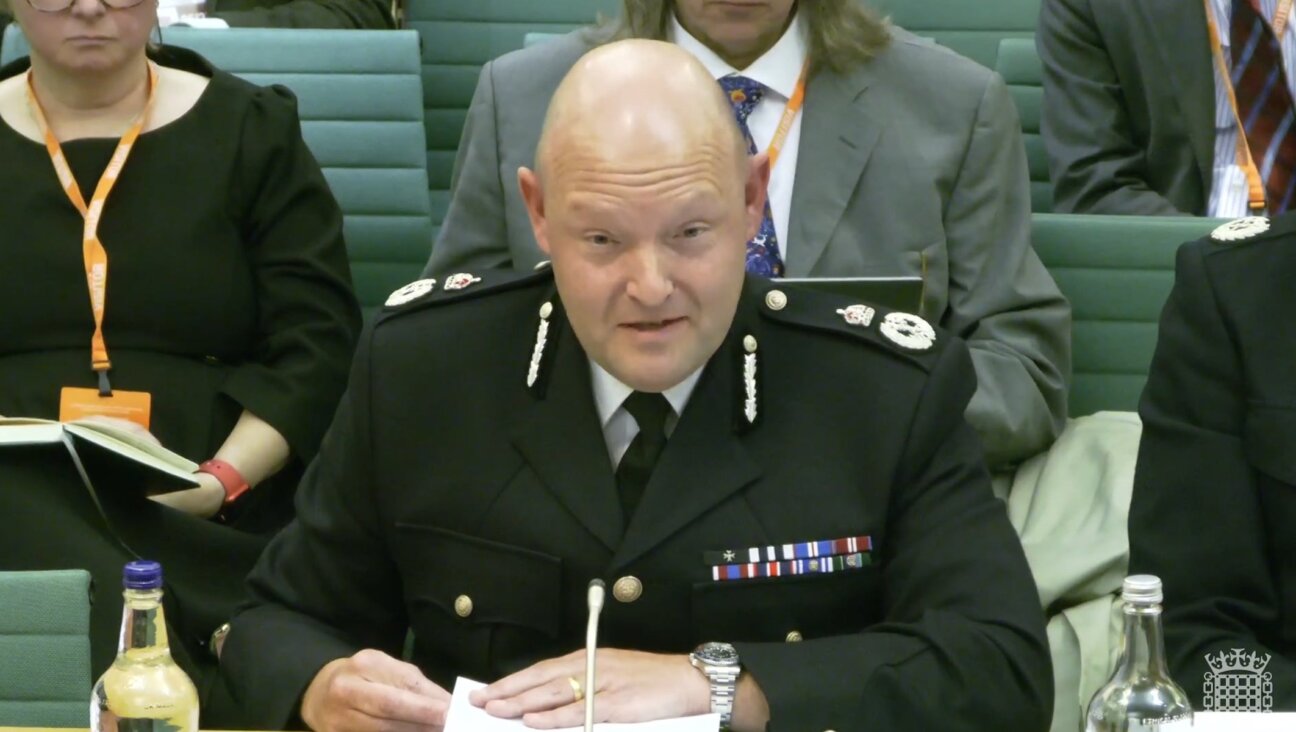Department of Education opens new antisemitism investigations into Harvard, Columbia, U of Tampa
The investigations join at least 7 others tied to antisemitism and Islamophobia since Oct. 7
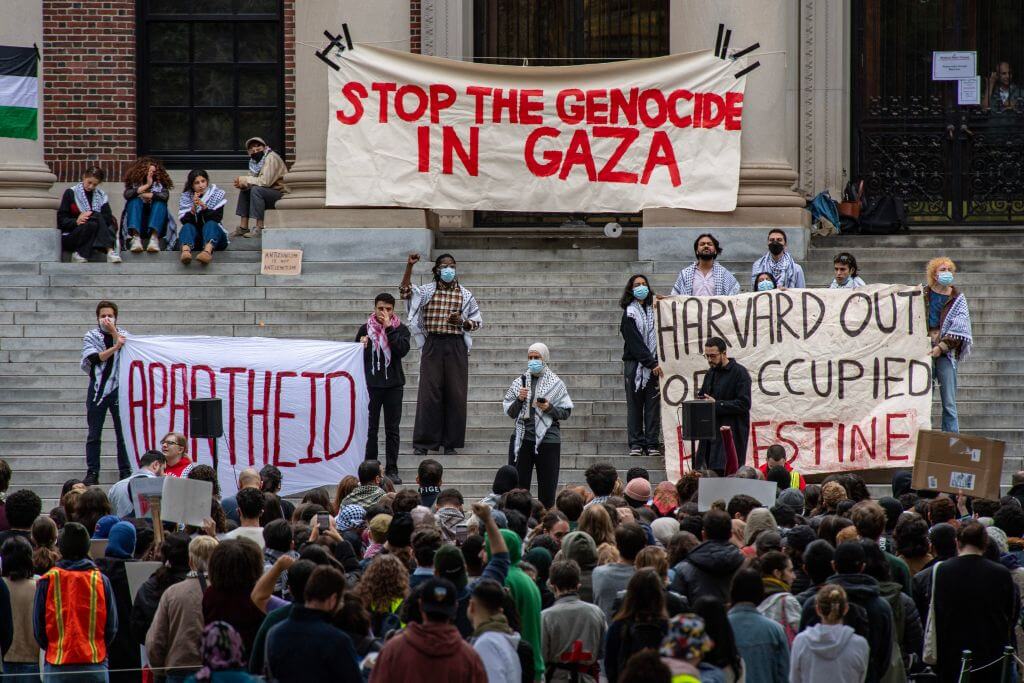
Pro-Palestinian groups gather at Harvard University to show their support at a rally in Cambridge, Massachusetts, on Oct. 14, 2023. Photo by Getty Images
(JTA) — Harvard University, Columbia University and the University of Tampa have joined an expanding list of schools under federal investigation for alleged failure to respond to antisemitism on campus.
Meanwhile, Harvard’s president has been summoned to address Congress about campus hostilities connected to the Israel-Hamas war, and the University of California, Berkeley, faces a new lawsuit over antisemitism that students there charge is “unchecked.”
The U.S. Department of Education’s civil rights office added the universities to its list of active investigations over the last week, just days after announcing seven other new investigations related to antisemitism or Islamophobia. The new investigation means that Columbia is now on the list twice. While the department does not share details of its investigations, independent reports say all three involve allegations of antisemitism.
The federal investigation at Harvard was opened Tuesday. According to a Fox News report quoting an anonymous Harvard graduate and a letter from the education department’s civil rights office, it concerns a incident in October when pro-Palestinian students allegedly assaulted an Israeli student at the Harvard Business School.
The student was accosted while he tried to film a “die-in” protest on campus, according to the Harvard Crimson student newspaper; the Crimson also identified one person who laid hands on the alleged victim as a Harvard Law Review member.
Harvard was one of the first schools to come under national scrutiny after several student groups signed an open letter on Oct. 7 that blamed Israel entirely for Hamas’ attack that day. Harvard President Claudine Gay took several days to issue a series of statements condemning Hamas, prompting further criticism. Some major pro-Israel boosters of the school, including the Wexner Foundation, cut ties in response.
Gay will appear Dec. 5 in a Congressional hearing on campus antisemitism — at least the fourth such hearing the House has conducted since Oct. 7 — alongside the presidents of the University of Pennsylvania and the Massachusetts Institute of Technology. Both schools have also been caught up in their own controversies related to the war. MIT drew criticism over its decision to partially suspend students who held a pro-Palestinian sit-in, while Penn is the subject of its own federal investigation partially related to a Palestinian literature festival it held prior to Oct. 7.
The Columbia and University of Tampa cases, both opened Nov. 20, also both reportedly concern incidents that predate the Oct. 7 attacks. According to Bloomberg, the Columbia probe dates back to a 2019 complaint by Jonathan Karten, an undergraduate represented by the pro-Israel legal group Lawfare Project. At the time, Karten alleged that a professor ridiculed him and claimed he “is Mossad,” the Israeli intelligence agency. Karten, a former sergeant in the Israel Defense Forces, also said members of Students for Justice in Palestine called him a “Zionist pig.”
While the university did investigate Karten’s claim at the time, it took no formal action. The Lawfare Project decided to re-up his claim in the wake of Oct. 7, telling Bloomberg it “mirrors and even foreshadows events currently occurring at Columbia,” where anti-Israel campus activity has turned increasingly militant and where the university has banned its Jewish Voice for Peace and SJP chapters for the remainder of the semester.
The University of Tampa case, meanwhile, concerns an incident that the university says took place in September. A Tampa Bay Times report quotes from a letter sent by the parent of a Jewish student to the university president, detailing a Sept. 23 incident in which the student was accosted with antisemitic slurs while walking to his friend’s dorm.
The students broke out in a fight, and the Jewish student was put in a chokehold and punched, according to the report. He filed a police report; the student who attacked him later apologized on Instagram, and the university conducted a hearing into the matter.
But the father, Stuart Meissner, told the local newspaper that the university’s response was “absurd.” Its conduct board, he said, had determined that allegations of antisemitism were “uncorroborated” because the students didn’t know each other; it further disciplined the Jewish student along with his attackers and ordered him to write a letter of apology, which his father has refused to let him do.
Meissner went on to accuse the university of being “guilty of antisemitism too” because of its “flagrant refusal to consider this case for what it is — the case of a young man defending himself and his cherished heritage against bigots and bullies.”
“The university is fully cooperating with the request for information but cannot comment further due to student privacy laws,” a spokesperson for the university told local reporters.
The Department of Education has opened seven other probes that it said are directly tied either to antisemitism or Islamophobia since Oct. 7. (The civil rights office has opened additional investigations into a handful of K-12 school districts, but no information was available on them at press time.) Opening an investigation does not mean the Department of Education believes it has merit, only that it has determined the allegations fall under its purview.
In other campus news, a lawsuit filed against UC Berkeley by the pro-Israel legal group Brandeis Center for Human Rights Under Law accuses the university of not more forcefully punishing anti-Zionist law student groups in 2022, saying their bans of outside speakers who support Zionism effectively “exclude Jews.” That case is also under active investigation by the Department of Education.
Correction: An earlier version of this story misspelled Stuart Meissner’s last name.
